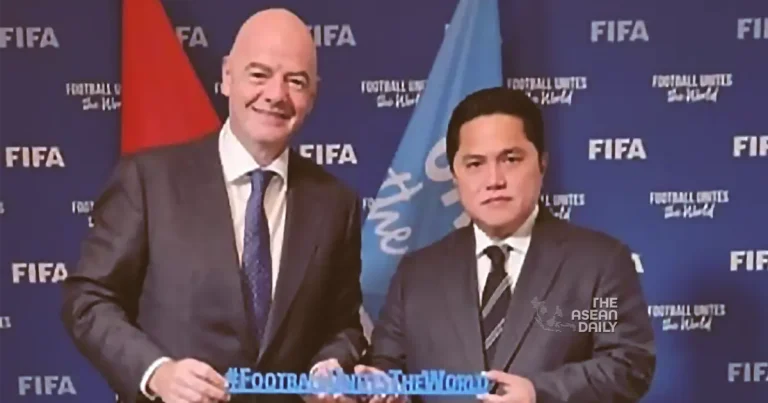23-10-2023 (JAKARTA) The chance for Southeast Asia to launch its first-ever joint bid for the FIFA World Cup has slipped away, with another realistic opportunity likely decades away. This month, FIFA announced that the 2030 World Cup would be hosted by Paraguay, Argentina, Uruguay, Spain, Portugal, and Morocco. Nations from Asia and Oceania were invited to register their interest to host the 2034 tournament, with a bid deadline of October 31.
Saudi Arabia swiftly expressed interest in hosting the event, garnering support from over 90 of FIFA’s 211 members. However, speculation about Indonesia joining a bid with Australia and New Zealand came to a sudden halt as the nation declared its support for Riyadh.
Indonesia’s announcement was unexpected, as just a week prior, discussions were underway to create a competitive bid with Australia. Despite the challenge from Saudi Arabia, Indonesia’s soccer federation president, Erick Thohir, had initially expressed confidence in the joint bid. “We are quite strong,” he stated.
A Southeast Asian bid with Australia, New Zealand, Indonesia, and potentially Singapore and Malaysia could have been a compelling contender. However, Southeast Asia’s potential has been undermined by Indonesia’s decision to support Saudi Arabia’s bid. Saudi Arabia, with its financial resources and ambition to become a global sporting powerhouse, is emerging as a formidable candidate.
Simon Chadwick, professor of Sport and Geopolitical Economy, noted the missed opportunity for Southeast Asia, given Indonesia’s large population and strong economy. Chadwick suggested that “a bid of this nature would be hugely compelling.”
A regional bid had been discussed at an ASEAN summit in 2019, but it did not progress. Recent discussions earlier this year showed some promise, but Indonesia’s shift in support has dampened the region’s chances for 2034.
With Europe, South America, North America, and Africa slated to host the World Cup after 2034, it may be several decades before Asia gets another opportunity to host the event. Moreover, competition from other Asian candidates like China and India adds complexity to Southeast Asia’s future World Cup bids.
Southeast Asia appears to have lost the chance to host the World Cup until at least the 2040s, with uncertainty surrounding whether it will go to another part of the continent when the opportunity arises.




